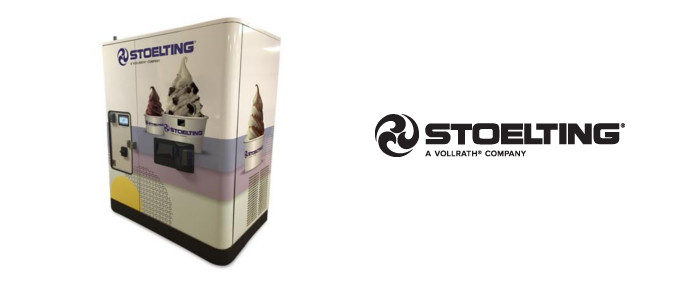The coffee machine is a piece of technological ingenuity. By putting a few scoops of coffee, water and pushing a button, you will have for yourself a nice cup of your favorite beverage fresh, hot and inviting. But sadly, with all that this machine does, it does not get the kind of attention that it deserves. A lot of people go weeks, sometimes months, or years without taking proper care of their coffee maker.
Proper Care for Your Coffee Maker: Cleaning and Descaling
Much like any other machine, a coffee maker will do its best job when you take proper care of it. Proper care involves cleaning as well as descaling it. One immediate advantage of doing this is that your machine will keep running efficiently for many years. Added to this, whatever you brew in the machine would taste better.
Although most people think that cleaning and descaling a coffee maker is the same thing, they are two different processes. They also address two different problems when it comes to coffee brewing.
Cleaning
By nature, coffee is an oily substance and after a period of continuous use, the oil accumulates and forms a rancid residue inside the machine. With this residue present, hardly will you be able to brew a great cup of coffee. Cleaning your machines involves you removing this oil residue. This helps your beverage to taste fresh always. You may want to simply rinse your coffee maker with water to remove loose debris from it but this will not be as effective as it won’t get rid of the oil residue.
In the process of brewing, several components of the machine come in contact with the coffee beans and they get exposed to the oil. These components need to be cleaned often. These include parts such as the brew chamber, grinder burrs, carafes, and the portafilter.
When you do not clean your coffee maker, it will have unpleasant effects on your drink. It will make it taste bitter as well as give out an acrid smell. This can also result in your device getting clogged and blocked rendering it unusable.
Most coffee makers come with automated programs for cleaning them but these are not enough and you cannot depend on them only. Residues such as coffee fats, calcium and grounds residue can stay unnoticed in the machine so you need to regularly take out time to clean it. A lot of models have sensors that serve to alert you when there is a need to clean them. They can either start beeping, flashing, or may even stop you from brewing your beverage.
Descaling
Depending on your device, when some certain indicator lights on your coffee maker are triggered, it means it is time to descale it. Descaling is different from cleaning as in addition to removing oil residue, you are dealing with limescale that has built up in the machine over time.
Typically, a cup of coffee is about 99% water. Limescale comes as a result of dissolved elements such as calcium, magnesium and limestone which are found in water, especially hard water.
When this water is heated in the machine to make coffee, the calcium and magnesium are broken down and they precipitate to form the solid limescale.
After using your equipment for a while, these minerals build up. Although they are not harmful, they definitely will affect the way your beverage tastes. They accumulate on the device’s heating element, pumps as well as every other part that water passes through. The most affected areas are where water has to sit for a while like in the boiler. Because this heating element is not obvious, several months of the mineral buildup may be present without your knowledge.
Again, the limescale may begin to block holes that are present in the coffee pot which is what triggers the indicator light. If your device is older and does not have the indicator lights, you can simply lookout for a chalky white residue. When you notice this, it means, it is time to descale.
To avoid descaling very often, you should try using spring or bottled water for brewing your coffee instead of using tap water. You can read about how to maintain your coffee maker here.
Why it is Important to Descale
The buildup of the mineral limescale can negatively impact the machine’s boiler and as a result, will affect your coffee.
With the boiler affected, the machine cannot reach its optimum brewing temperature and it is not possible to extract the whole flavor from the coffee beans. Coffee tastes best when it brews at the right temperature.
Additionally, the scale buildup may clog the flow of water and can stop your machine from working if it is not removed. So if you have never descaled your machine or you have not done that in a long while, you are most likely not getting the best coffee possible. You will not get the full flavor and taste and your cup will be tepid instead of hot. In a gloomier scenario, your machine will start to malfunction. None of these is good for you.
Descaling your machine is one of the fundamental things that you need to do to keep your kitchen in top condition. It should be an essential part of your regular maintenance and cleaning as it helps to keep the quality of your coffee high. In addition to this, it is going to extend the lifespan of your equipment.
Just like most other machines for example a car needs regular maintenance and servicing, it is equally important that your coffee maker be regularly serviced. It is recommended that you do so every 4 – 6 months. This is dependent on how often you use it or how many cups of coffee you make per time. Doing this helps to keep it in perfect order.
What You Need For Descaling
To descale your machine, you need a descaling agent otherwise called a descaler. This works on the pipes as well as the pump which is at the back of your coffee maker. Descaling however does not clean the nozzle or brewing chamber. To handle these areas, you need to clean your machine instead.
Descaling agents are acidic compounds that interact with the limescale (calcium and magnesium carbonate) present in your machine. This reaction produces carbon dioxide as well as a soluble salt. It is recommended to use protective wear such as plastic aprons and rubber gloves during descaling and cleaning. This is because some of the more strongly acidic ones can be corrosive and can affect the eyes or the skin.
When you bought your machine, it is most likely it came with some cleaning and descaling sachets which you can start with. You can also buy extra descaling agents either from your machine’s manufacturer or those that are available from third parties.
Using a Manufacturer’s Descaler vs Third-party Descalers
As much as manufacturers would like you to believe that using a third party descaling agent will damage your machine, it is not true. These branded products are way costlier than buying a third party cleaner. It is most times a marketing ploy by manufacturers. If you are keen on getting less expensive products, you may have to consider options other than the one from your machine manufacturer.
However, having said this, manufacturers typically attach the use of the brand’s descaling agent to the product’s warranty. They make it fully valid only if you make use of their cleaners. So if you are not keen on taking the risk, you should rather use a manufacturer-branded descaler in the initial period that the warranty covers. If for any reason your machine has an issue, you do not want to give the manufacturer an excuse to void your warranty.
This does not however mean though that using a third-party product carries a potential risk or damage to your coffee maker. It is just that the terms associated with a warranty require that you utilize the official consumables and parts from the manufacturer.
You can visit beantocupcoffeemachines.net to check out some of the best descaling agents.
How to Descale Your Coffee Maker
Descalers often time come as tablets and liquids but occasionally, they can come in powder form. Using them is as easy as when you are trying to make a cup of coffee. When you see a notification that your machine is due for descaling, or if you have prepared over 200 cups of coffee with it, then follow the steps below to descale it.
- Turn the machine off.
- Take out its water tank, rinse and fill with water.
- Pour the descaling liquid or powder into the water or add a descaling tablet. You can use whichever one you prefer or use the one that your machine manufacturer recommends. You can know this by checking the user manual of the machine. From the manual, you can also get the quantity of descaling agent to use or check the packaging if you are using a third party product.
In preparing the mixture when using a tablet or powder, do not use a separate bowl or dish. Simply use the machine’s water tank.
- If you are using a powder or tablet, wait for this to dissolve.
- Put back the water tank and turn on the machine.
- If your equipment comes with an automated descaling function, you can simply start the program. You then wait till it finishes.
- If your machine does not come with an automated function, it is still as easy. With the descaler and water in the tank, you can proceed as you would when preparing a cup of coffee.
- Leave the machine while the descaling agent does its job. Wait for around 15 minutes then prepare another cup and wait for 10 minutes. Prepare yet another cup and wait for about 5 minutes. Do this until the water tank is empty.
- You can now turn off the machine and bring out the water tank. Rinse the tank properly and then fill it with clean water.
- You should then prepare real coffee and spill it out a few times. This helps to further rinse the machine.
Once you are done descaling your coffee maker and you are satisfied, you can go ahead and treat yourself to a hot cup. You will notice the difference in temperature, flavor and taste.
Where to Buy Descalers
You can buy descalers from online stores as well as local supermarkets and stores. Be careful not to use products that are not meant for coffee machines. The water pipes in coffee makers are not designed to use other detergents. They may also lack the needed concentration to properly descale the machine. There is also the potential risk of the equipment getting damaged.
Also, avoid using other substances such as vinegar. At the end of the day, you will get a hint of vinegar in your beverage. This can result in wasting your precious coffee beans as the vinegar will smell and the taste will linger especially when you do not rinse properly.
Read Also: Surge in Gamified Dieting Amid ‘Quarantine 15 – Food & Beverage
Conclusion
If you like a good cup of coffee, then you should take time to clean as well as descale your coffee maker often. You should understand from above that cleaning your coffee machine is not the same as descaling it. While cleaning removes oil residues that may be present, descaling removes limescale accumulated from calcium and magnesium that is present in water.
Descaling does not only improve the performance of your device as it will be more effective and efficient, it also extends its lifespan.
When it comes to products for descaling your machine, avoid using cheap alternatives such as vinegar. It is not as effective and may make things worse. Also, if you would like to enjoy a warranty claim, then it is advisable to use your manufacturer’s branded product. However, if you do not care about the warranty, or it is no longer covered, there are third-party descaling products that are as effective that you can use.








